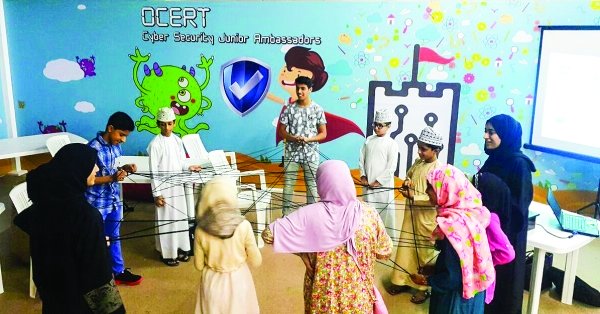
Muscat: Many parents do not report abuse of their children online as they still see it as taboo, according to experts at the country’s computer security agency.
Oman CERT (OCERT), the country’s cyber security agency, in collaboration with the concerned ministries and lawmakers, is trying to protect Oman’s children from crimes and abuse online, according to a top official at CERT.
Amal Said Al Mashaykhi, a cyber security training and awareness specialist and child online protection project supervisor at OCERT, said out of the many different crimes, social media is the main window for online crimes and also poses the biggest threat to the cyber security of children in the country.
**media[477191]**
Social media
“Blackmailers reach children through social media accounts, where they try their best to build a trust channel with the child and then try and take advantage of them. Social media channels are the main thing, abusing children through social media by sending them inappropriate images, sending them content, which is not suitable for their viewing, calling and direct messaging the children are some of ways in which the blackmailers act.”
Oman National CERT has an assistance number (24166828), where people can report cyber crimes or seek advice; users also have a choice to report cases on CERT’s website in the cyber security incidence online system, which can be found on www.cert.gov.om. Despite these systems in place, Al Mashaykhi feels that most cases of child abuse happening online go unreported.
“We do receive many complaints on a daily basis; however those related to children are very limited. On the hotline number, we mainly get complaints from adults. I think from my personal experience, people in society don’t report cases when it comes to their children, because they think its taboo.”
“Through capacity building, we can reach out to society and if you don’t want to precisely talk about your children, you can reach us through fax and email, or let us know what going on, like a general scenario and then we will assist you with advice like what’s the good thing to do.”
Assistance
We are trying to cooperate with them and impart the services from a cyber security aspect.”
With their outreach programme in place, members of CERT also hold counselling sessions for parents at both public and private schools, inside and outside Muscat, where they advise parents to educate and update themselves with online technology and social media tools.
“We let parents know that they have to educate themselves, because there is no one who will go to their house and give them an A to Z guideline, but they need to educate themselves in this field from different aspects regarding cyber security to protect
their children.”
“We also have a newsletter and whoever wants to receive it can register at the CERT website after which they will be updated almost on a weekly or monthly basis regarding cyber security and social issues.”
Following up with children, and observing their behaviour is very important, according to Al Mashaykhi, if parents need to identify any trouble.
“Parents need to monitor the behaviour of their children and the kind of language they are using with friends and family and if the children are victims of cyber crimes, it would normally appear in their behaviour.”
Apart from monitoring at home, Al Mashaykhi also advised that parents need to be in constant communication with the teachers of the children at school and speak to them about any behavioural changes.
“Implementing guidelines at home is one of the most important things, it is challenging if children are older than 10 years, and if they are already used to the technology. However, parents need to put in place such agreements with children and reward them for abiding by the rules,” Al Mashaykhi explained.
Ever since the child cyber security programmes were initiated by CERT, they have run several programmes for children, including the “Towards a safe cyber environment” campaign in 2009-2010, and another nationwide workshop for a week in 2013. They also established the child online protection pillars and the junior ambassadors programmes in both public and private schools since last year. Many other programmes are also in place.